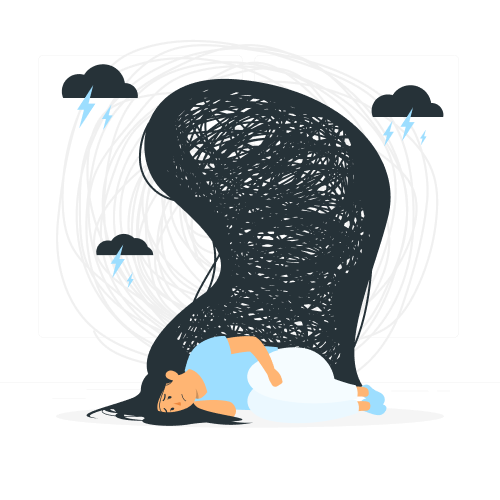





Cognitive Behavioral Therapy (CBT) is a structured approach that explores the powerful connection between thoughts, feelings, and behaviors. Operating on the premise that negative thought patterns can influence our emotions and actions, CBT helps individuals identify, challenge, and reframe unhelpful beliefs.
Dialectical Behavior Therapy (DBT) is a structured, evidence-based therapy developed to help individuals manage intense emotions and build effective coping skills. Originally designed for individuals experiencing borderline personality disorder, DBT has proven effective for a wide range of issues, including addiction, anxiety, and mood disorders. DBT focuses on four core skill areas: mindfulness, distress tolerance, emotion regulation, and interpersonal effectiveness.
EMDR Therapy is an innovative psychotherapy approach designed to alleviate the distress associated with traumatic memories. Initially developed for individuals with post-traumatic stress disorder (PTSD), EMDR uses eye movements or other forms of bilateral stimulation to help the brain reprocess traumatic experiences. This process can reduce the emotional impact of distressing memories, allowing clients to integrate these experiences more adaptively.
Acceptance and Commitment Therapy (ACT) is a mindfulness-based approach that encourages clients to accept difficult thoughts and emotions rather than fighting them, fostering psychological flexibility and resilience. ACT focuses on helping individuals connect with their values, clarifying what truly matters to them, and taking committed action to build a meaningful life. Through practices like mindfulness and cognitive defusion, clients learn to reduce the impact of negative thoughts and cultivate a greater sense of purpose.
Solution-Focused Therapy is a goal-oriented approach that emphasizes finding practical solutions to current challenges rather than focusing extensively on past issues. In this therapy, clients are encouraged to envision their desired future and identify the strengths and resources they already possess to make that vision a reality. By focusing on small, achievable steps and building on existing successes, Solution-Focused Therapy helps clients gain confidence.
Inner Child Therapy is a therapeutic approach that focuses on healing the emotional wounds of the "inner child," symbolizing the feelings, memories, and experiences from one’s childhood. This therapy helps clients reconnect with and understand these early parts of themselves, often revealing unmet needs or unresolved pain that may impact their present life.
Person-Centred Therapy is a client-focused approach that emphasizes empathy, unconditional positive regard, and genuine understanding to create a supportive therapeutic environment. This approach trusts that clients have the innate ability to understand and resolve their challenges when provided with a safe, non-judgmental space. This form of counseling helps clients explore their feelings and discover their own path toward personal growth and self-acceptance. This empowering method fosters self-awareness and promotes lasting change by valuing the client's autonomy and inner wisdom.
Internal Family Systems (IFS) Therapy is a compassionate, non-pathologizing approach that views the mind as made up of distinct "parts," each with its own feelings, beliefs, and roles. These parts often stem from past experiences and can either support or hinder well-being.
Attachment Style Therapy explores how early bonding experiences with caregivers shape one's patterns in relationships, known as attachment styles. These styles—secure, anxious, avoidant, or disorganized—can influence how individuals relate to others, manage intimacy, and navigate conflict.
We'd love to hear from you! Whether you have questions about our services or are ready to book a session, we're here to help. Fill out the form, and let's start your journey to healing together.
